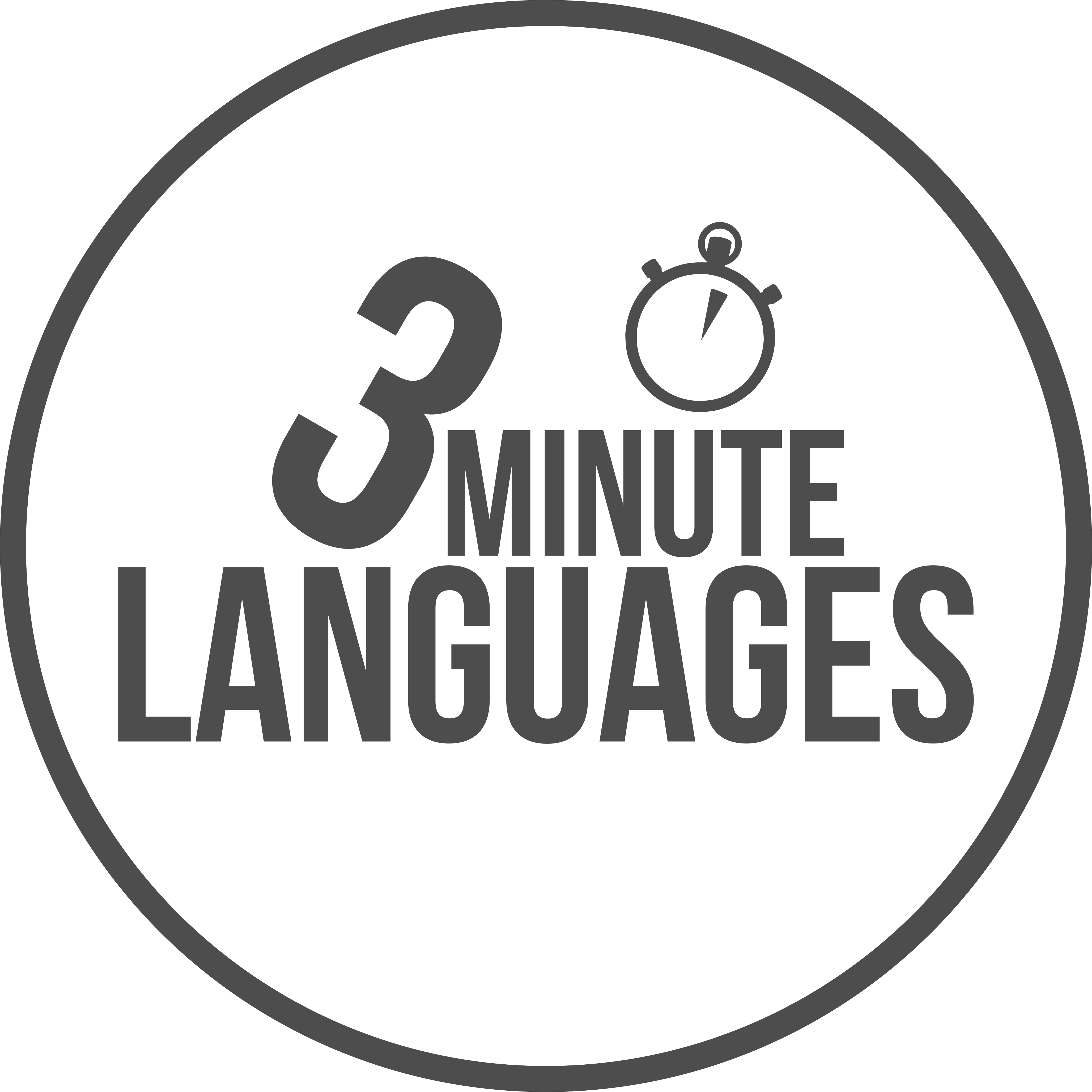When you’re learning a lot of new words at once, there will often be the odd few words that you just cannot seem to remember.
What you should do first is make a list of those words you’re struggling with and start to tackle them one word at a time, using this technique.
Grab a small piece of paper and write the word you can’t remember, in English, in the centre. Fold the piece of paper up and put it in your pocket. Don’t write the word in any language other than English.
A few times a day, take out the piece of paper and look at the English word, and try to remember what it is in the language you’re learning. The first few times, you might have to watch one of the 3 Minute Languages videos again or look through your cue cards to find the word, but having to do this each time will annoy your brain, since it’s a lot of effort. Consequently, your brain will start to make the word into a memory just to make things easier for you.
Build sentences, too
Each time you take the piece of paper out, try and remember the foreign word, but also try and think of a sentence that you could use that word in. For example, if the word you struggle to remember is “very”. Write “very” in the middle of the paper and then whenever you take it out of your pocket, make up a sentence such as “it is very good” or “it is very good here” or “it is always very good” and say them out loud in the foreign language. By making sentences, it will give the words more relevance in your mind, making them easier to remember.
This technique is something you should only do with any words that won’t go in after trying the cue card techniques. You’ll find that the majority of words will go into your brain and become memorised quite easily, but there will always be a couple that won’t.
Tackle only one word at a time
If there is more than one word that won’t go into your brain, the important thing is to tackle just one of them at a time. Don’t put more than one word on that piece of paper you put into your pocket.
Don’t try too hard?
Finally, I have just one last quick note about this technique. You should only use this technique for a couple of days with each word. If you find that, even after two days, the word still doesn’t go in, then stop! This is because, if you spend too long trying to remember the word, it will become an issue for you and every time you see it, you’ll think, “Oh no, it’s that word again!”. Sometimes, giving yourself a break can work wonders; just because you’ve stopped consciously thinking about something doesn’t mean your brain isn’t subconsciously thinking about it. A lot of the time, I’ve found that I can remember those tricky words better, if I actively try to forget them. I just ignore it for a few weeks, then when I look at it again, it’s already been internalised!
Once you have all the words memorised, what do you do then? Well, this is when the fun part begins because you actually get to use the language! This is biggest reason anybody chooses to learn a new language; they want to actually use it when they go travelling. However, this can also be one of the biggest challenges. Well, it was for me.
If you would like to learn to speak a new language, you can find my courses available in French, Spanish, German, Italian or Portuguese at www.3minute.club


